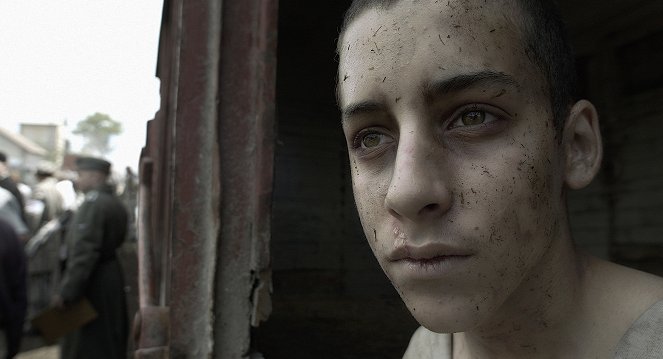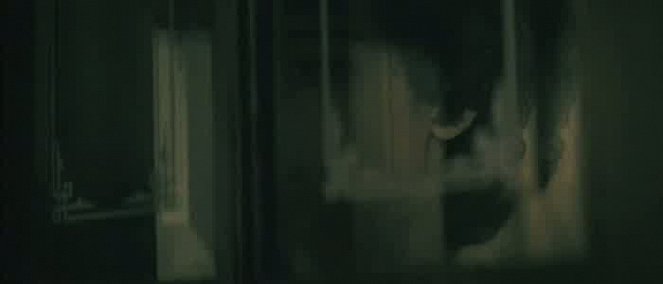Réalisation:
Lajos KoltaiPhotographie:
Gyula PadosMusique:
Ennio MorriconeActeurs·trices:
Marcell Nagy, Béla Dóra, Bálint Péntek, Áron Dimény, Péter Fancsikai, Zsolt Dér, András M. Kecskés, Dániel Szabó, Péter Vida, Endre Harkányi (plus)Résumés(1)
Gyuri Koves, dit "Gyurka", est un adolescent de 14 ans. Un jour, près de Budapest, il est arrêté par un policier hongrois. Après une longue attente, il est emmené vers une destination encore inconnue et qu'il a du mal à prononcer: Auschwitz-Birkenau. Gyurka est ensuite transféré de camp en camp. L'enfer commence. Gyurka, très malade, manque de mourir jusqu'à ce que le camp soit finalement libéré par les Américains. Sur le chemin du retour vers Budapest, sa ville natale, toujours vêtu de ses habits rayés de prisonnier, Gyuri éprouve l'indifférence, voire l'hostilité de la population hongroise. Ses anciens voisins et amis le pressent d'oublier les terribles moments qu'il a passés dans les camps, sont gênés dès qu'il évoque son expérience et ses souvenirs du camp. Le jeune garçon est alors livré à lui-même pour comprendre ce qu'il lui est arrivé. (texte officiel du distributeur)
(plus)Vidéo (1)
Critiques (2)
After watching this movie, I did a lot of long and hard thinking and I eventually came to the conclusion that this film presents probably the rawest view of concentration camps and the extermination of Jews that I have ever seen in a movie. It might be because this film is a raw depiction of the life of a boy that has a pretty normal start. But once the war breaks out, they send him to a concentration camp and at that point the movie gets so depressing that it doesn’t recover even once the war is over. But it does involve a whole number of interesting ideas. For instance, I was surprised about how the Jews made fun of the concentration camps at the start. I was also surprised at the end of the movie about the fact that not every Jew went to a concentration camp. And what I found worst about it was the indifference and lack of interest of everybody after the war was over who were only interested in finding out what was happening in the camps, but nobody asked the particular people how they were feeling and whether they would be able to come to terms with all the things they had gone through. In the very last minutes of the film, little Gyuri, who was by the way portrayed excellently by Marcell Nagy, speaks about such things that would never even occur to me. But as you can see, the human brain is incredibly adaptable and our psyche can do incredible tricks with a child. For instance, it can turn a concentration camp into a nice place…
()
The high-quality book awarded with a Nobel Prize is clearly felt in the film, as it is a powerful story whose main advantage is authenticity and absence of emotional manipulations, so well-known from Spielberg's films. This is simply a credible story of a hero who survived extermination concentration camps and returned to find that his former material and emotional basis is in ruins and he must start over from scratch. I liked this film more than Schindler's List for its realism and credibility, but the sobriety with which it is filmed deducts a fifth star. Overall impression: 85%.
()
Photos (19)
Photo © ThinkFilm Inc.



Annonces